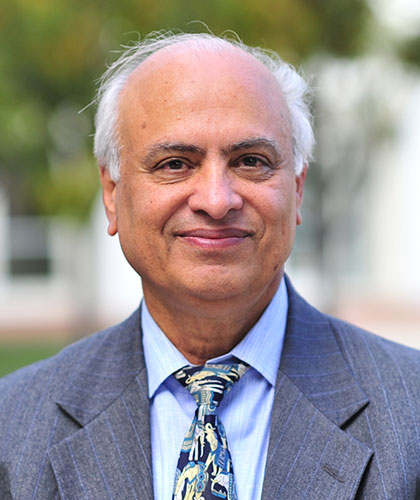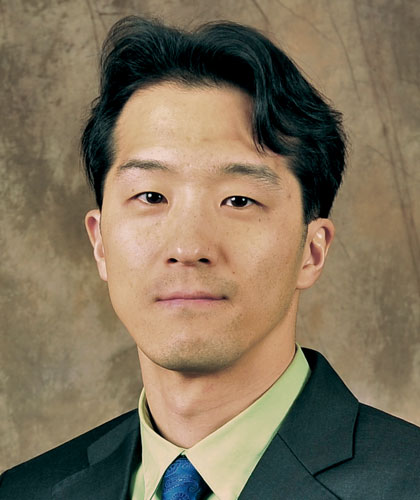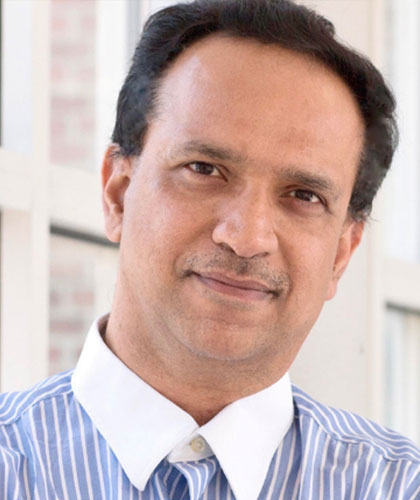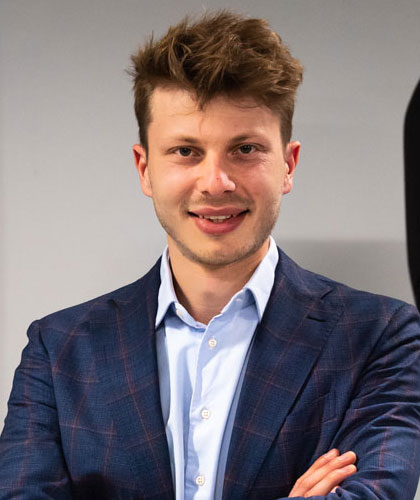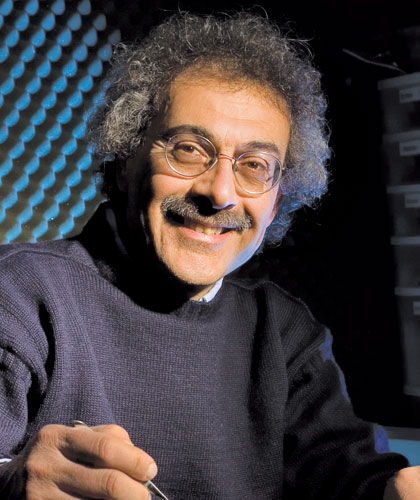Six Clark School Faculty Receive 2024 DURIP AwardsSix University of Maryland A. James Clark School of Engineering faculty members have received funding through the Defense University Research Instrumentation Program (DURIP). DURIP supports university research in technical areas of interest to the Department of Defense (DoD) by providing funding for state-of-the-art research instrumentation necessary to carry out high-quality, cutting-edge research.
“Upgrading of Model Rotor Rig for Testing of Tip‐Propeller‐Driven Rotor in the Glenn L. Martin Wind Tunnel” Chopra is a leading researcher in the field of rotorcraft; the 2023 DURIP award will help upgrade UMD’s existing rotor rig to generate a comprehensive set of measurements of the blade structural loads, hub loads, blade pressures, propeller torque, main rotor performance, rotor/propeller wake interference, and motor characteristics of dynamically scaled tip-propeller-driven rotor consisting of a main-rotor, compact electric motors, and a stream-lined nacelle for a range of flight conditions. These datasets are vital to validate advanced CFD/CSD tools as well as gain improved understanding of the fundamental physics of the tip-driven rotor system using compact propellers. The upgraded research facility will support UMD students and be made available to the rotorcraft industry and federal laboratories.
“Acquisition of Quantum Scanning Microscope for Nanoscale Imaging of Spin Textures in Emergent 2D Magnets” Gong’s research is in the areas of 2D materials and devices, 2D magnetism and spintronics, energy-efficient nanoelectronics, novel sensors, and quantum phenomena. The newly supported instrumentation will help expand the study of nanoscale magnetic structures and spin textures across many material systems. The new experimental capability can be used in fundamental quantum physics investigation, nanoscale logic and memory device development, and the fine probing of the intricate interaction between quantum materials and sensor analytes.
“Multi‐Purpose Evaluation Platform for Critical Care Monitoring and Control Systems” As head of the Laboratory for Control and Information Systems, Hahn is advancing technologies in health monitoring and maintenance methodologies applicable to a wide range of dynamic systems by exploiting control and systems theory, with priority emphasis on bio-systems, health, and medicine. The 2023 DURIP award will support building a versatile multi-purpose evaluation platform suited to both in vivo and hardware-in-the-loop simulation-based testing of complex multi-variable physiological monitoring and closed-loop control systems relevant to automated critical and combat casualty care.
“Multi‐Agent Ground Autonomous Systems” Manocha is a leading expert in the fields of multi-agent simulation, virtual environments, artificial intelligence, and robotics. The 2023 DURIP award will support essential instrumentation to develop next generation technologies for ground autonomy using multiple robot agents in complex indoor and outdoor scenarios with the long-term goal of developing legged robotic platforms capable of operating in decentralized groups while autonomously navigating environments with a diversity of terrains.
“Extended Reality Simulation and Control of Aerospace Vehicles with Brain Activity Monitoring” Saetti heads up UMD’s new Extended Reality Flight Simulation and Control Lab, where the 2023 DURIP award will help support new equipment to extend the lab’s capabilities three ways: haptic cueing, motion capture, and biometry tracking; augmented reality; and wearable sensory systems for cognitive and physiological activity monitoring (brain–machine interfaces). These enhancements will enable the long-term investigation of neuroadaptive shared autonomy and multimodal cueing for human–machine teaming involving aerospace systems. The broad aim is maximizing the pilot-vehicle performance through optimal human-machine interaction.
“Intensive EEG Recordings for Decoding of Imagined Speech” Shamma’s research deals with issues in computational neuroscience, neuromorphic engineering, and the development of microsensor systems for experimental research and neural prostheses. The 2023 DURIP funding will support EEG recording equipment to collect the databases, and the computational resources necessary to analyze and formulate a speech recognition system to use for decoding imagined speech. The proposed research stems from the fact that when a person imagines speech in their mind, they induce neural responses that can be recorded non-invasively with scalp EEG electrodes, and these responses, in principle, can be decoded and interpreted if we have an adequately trained speech recognizer. UMD’s 2024 DURIP recipients also include Professor of Physics Johnpierre Paglione.
Related Articles: December 21, 2023 Prev Next |


